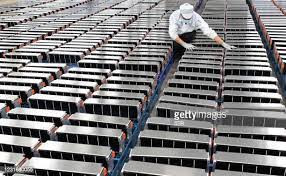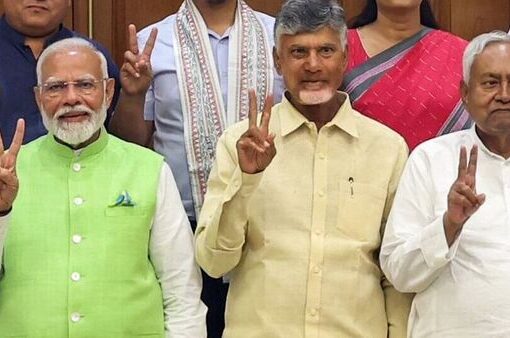Pressure from the Chinese government may be forcing its companies to resort to all means including smuggling to ensure supply chains and market domination
by Prasad Nallapati
Afghan authorities have exposed a Chinese network involved in smuggling of Lithium ore from mines in Nuristan and Kunar provinces, bordering Pakistan. Five persons including two Chinese nationals were arrested two weeks ago (January 22, 2023) in Jalalabad while smuggling lithium-bearing stones to China through Pakistan. Afghanistan is estimated to have $ 1 trillion worth of rare earth minerals, including huge deposits of lithium.
Lithium is a critical mineral in green technologies. Lithium-ion (Li-ion) batteries are used to power electric vehicles, and to store wind and solar energy.
China has long been trying to ramp up its control over Lithium ore mines across South America, Africa and Australia, as its domestic reserves are very limited. Nearly 80 per cent of known deposits are in four countries – the South American lithium triangle of Argentina, Bolivia and Chile, and Australia.
Beijing controlled 65% of the world’s lithium processing and refining capacity while its access to lithium deposits accounts for only less than 25% of the world’s lithium resources. Its domestic supplies are just 7% of the world’s reserves. Chinese companies are buying 70% of lithium compounds and supplying 70% of lithium production largely to domestic lithium battery makers, six of which are among the top ten in the world.
China has been the single largest consumer of lithium-ion batteries. It is also the world’s undisputed king of battery production, with its largest battery manufacturer, Contemporary Amperex Technology Co. (CATL), alone supplying 35% of the global Li-ion market. Even in the field of solar battery modules, Chinese companies hold around 71% global market share.
China’s lithium-ion battery industry witnessed a growth of 106% in 2021 and 150% in 2022 over previous years.
The global Lithium-ion demand is projected to increase 400% by 2030. It means 2.4 million metric tonnes per year. Analysts at the investment firm Jefferies Group forecast that global lithium production will increase 34% in 2023, 14% in 2024, and 8% in 2025. But even with these increases, there will be a 37% shortfall in lithium supply by 2030, according to a recent study conducted by KU Leuven and commissioned by Eurometaux, a European industry association for nonferrous metal producers and recyclers.
The contract price for lithium has more than doubled in the past year, to above $25,000 per metric ton of battery-grade lithium hydroxide. Analysts at Berenberg forecast that the contract price will be about $36,000 per metric ton in 2023 and $26,500 in 2024. The spot price for the same material has increased by 150% in Europe since the beginning of 2022. It reached $80,000 in October on the London Metal Exchange.
Such huge potential has led Chinese and Western governments racing to acquire new mines, increasing current capacities and setting up new refining and production centres. The US and European countries want to reduce their dependency on Chinese supplies, while Beijing is eager to safeguard its supply-chains and maintain its control over the industry.
In June, the US, Australia, Canada, Japan, South Korea, and many European countries established the Minerals Security Partnership to secure a non-Chinese supply of critical minerals, including lithium. While the US has the potential to produce most of the lithium it needs by 2030, analysts expect Europe to meet at most 25-50% of its demand for lithium. Europe currently has zero lithium-mining or lithium-processing capacity despite being one of the world’s fastest-growing EV markets.
China’s Ministry of Industry and Information Technology (MIIT) and State Administration for Market Regulation (SAMR) issued notices in November last for achieving coordinated and stable development of the lithium-ion battery industry supply chain. While China is expected to continue to maintain its domination over Lithium-ion battery industry for a longtime to come, it started facing serious headwinds.
China’s heavy dependence on imports is a major handicap as domestic supplies are very limited and of low quality. Some of the other challenges that Beijing is facing include resistance from local communities against its companies as in Chile and other supply chain issues in Africa. Australia had so far been a supplier of lithium-rich material to China, where it was processed and sold elsewhere. But that changed last year with the opening of Australia’s first processing plant for battery-grade lithium hydroxide, near Kwinana.
These challenges and pressure from the Chinese government may be forcing its companies to resort to all means including smuggling to ensure supply chains and market domination.
(Prasad Nallapati is President of the Hyderabad-based Think-Tank, “Deccan Council for Strategic Initiatives” and former Additional Secretary to Govt of India)




